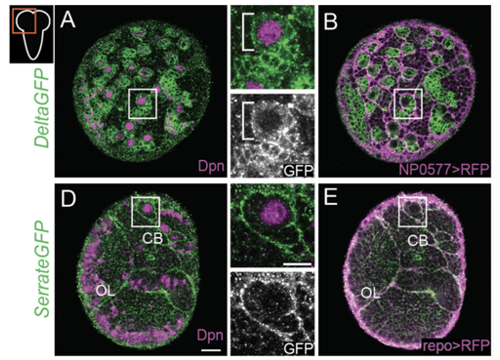
During development, neural stem cells (NSCs) divide asymmetrically, sequentially expressing a series of intrinsic factors to generate a diversity of neuron types. After cycling through temporal programs, NSCs terminally differentiate or die, bringing an end to developmental neurogenesis. From a screen aimed at identifying genes required to terminate neurogenesis, we identified Notch and Notch pathway components. When Notch is knocked down in neuroblasts ( Drosophila NSCs) or their glial niche, neurogenesis extends into adulthood due to defects in neuroblast temporal programs: early Cas/Svp/Imp expression is prolonged and late Syp/E93 expression is delayed or reduced. Notch activity is regulated by Delta, expressed in neuroblast and cortex glial neighbors, and Delta localization is regulated by neuroblast temporal factors: early Imp promotes Delta and late Syp/E93 inhibits Delta. Together, temporal programs restrict Delta-dependent Notch activity to “young” neuroblasts and Notch inhibits early temporal factor expression to promote NSC lineage progression and timing neurogenesis termination.